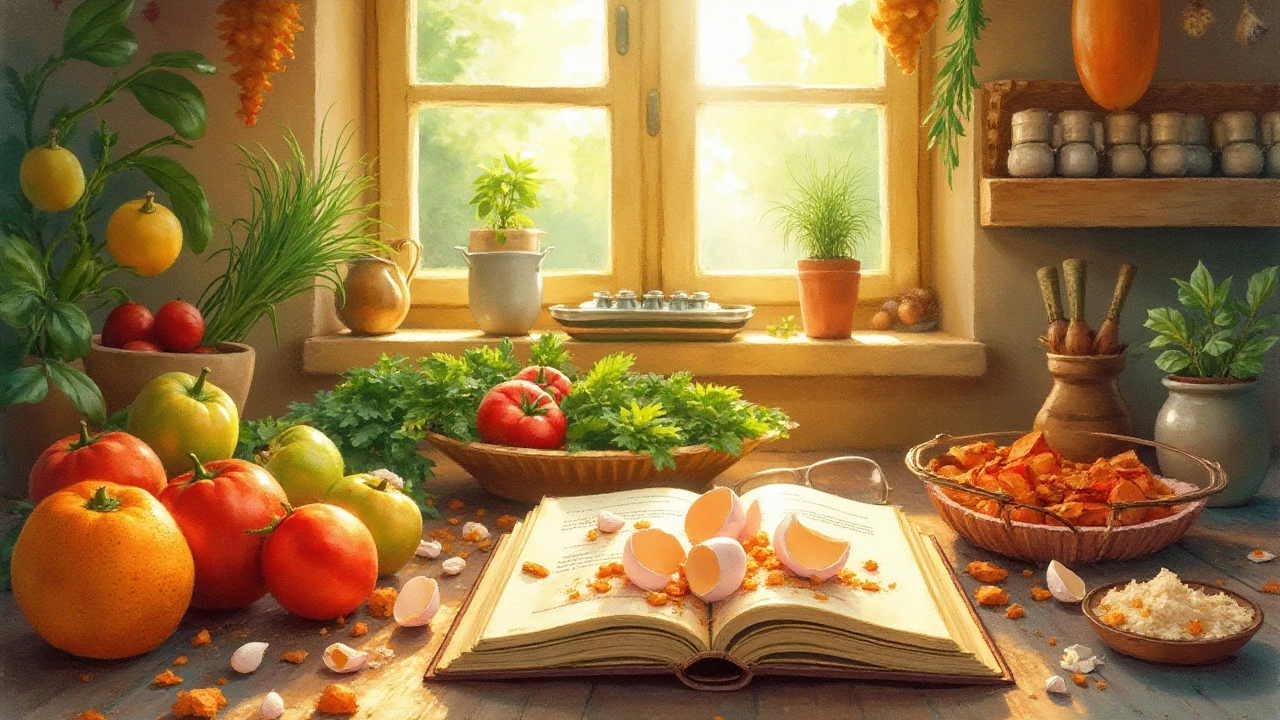Eggshells: Turning Kitchen Waste into Garden Gold
When working with eggshells, the hard outer shells of chicken eggs that usually end up in the trash. Also known as egg shells, they are a cheap, biodegradable resource for any gardener. By grinding them into a fine powder and mixing them into compost, a nutrient‑rich blend of organic waste that breaks down into a soil amendment, you boost the nitrogen‑calcium balance and speed up decomposition. At the same time, eggshells act as a natural calcium source, providing essential calcium ions that strengthen plant cell walls and improve fruit quality. This simple step turns a kitchen by‑product into a valuable fertilizer component.
Practical Ways to Use Eggshells in Your Garden
First, rinse shells to remove any residue, then let them dry and crush them with a mortar or blender. Sprinkle the crumbs around the base of eggshells‑fed plants to create a gentle mulch layer that helps retain moisture—great for container gardens that often suffer from uneven watering. The sharp edges also serve as a pest deterrent, a physical barrier that discourages slugs, snails, and some beetles from crossing the garden bed. For larger beds, you can lay a thin screen of crushed shells before sowing seeds; the calcium slowly leaches into the soil, enriching it over the growing season. If you practice no‑till gardening, the shells blend seamlessly into the existing soil structure, improving aeration without disturbing microbial life. Pairing eggshells with drip irrigation under mulch, as discussed in our guide on efficient watering, maximizes water use while the shells slowly release nutrients. For those who compost, adding a handful of crushed shells each week keeps the carbon‑to‑nitrogen ratio balanced, reducing the need for synthetic lime. Beyond the garden, eggshells support broader sustainable farming goals. They embody the circular economy principle—using waste to create value—while supplying a natural calcium supplement that can replace expensive commercial products. Whether you’re a beginner planting your first tomato or an experienced grower managing a rooftop garden, incorporating eggshells adds a low‑cost, eco‑friendly boost to plant health. Ready to see the impact? Below you’ll find a collection of articles that dive deeper into watering schedules, no‑till methods, soil rehydration tricks, and other smart garden practices—all of which can be enhanced with the humble eggshell.
Eggshells in Compost: Green or Brown Material?
In composting, understanding the type of waste you are handling is crucial for efficient decomposition. Eggshells, often seen in our kitchen waste, pose the question of whether they belong in the green or brown category of compost materials. This article explores the role eggshells play in the composting process, their benefits, and how to best incorporate them into your compost pile. Discover interesting tips on maximizing their effectiveness in creating rich, fertile compost.
- manufacturing
- India
- food processing
- garden tips
- rice cultivation
- government schemes
- balcony garden
- urban gardening
- balcony gardening
- profitable business
- business ideas
- plastic manufacturing
- drip irrigation
- plant care
- steel manufacturing
- sustainable gardening
- startup ideas
- steel industry
- flower gardening
- textile manufacturers






